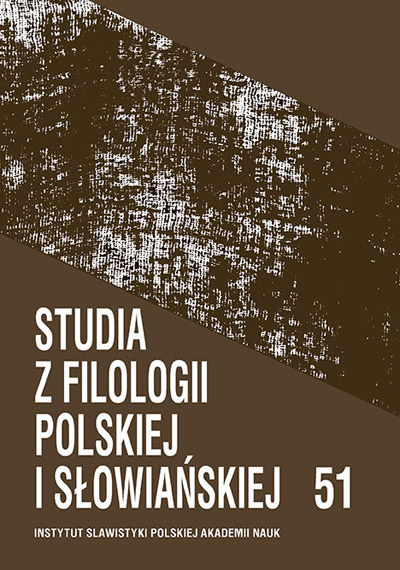Словообразувателни модели на жителските имена (nomina habitatorum) в съвременния български и чешки език
Word-formation models of inhabitant nouns (nomina habitatorum) in contemporary Bulgarian and Czech
Author(s): Tsvetanka AvramovaSubject(s): Language studies, Language and Literature Studies, Theoretical Linguistics, Applied Linguistics, Morphology, Lexis, Sociolinguistics, South Slavic Languages, Philology
Published by: Instytut Slawistyki Polskiej Akademii Nauk
Keywords: inhabitant nouns (nomina habitatorum); word-formation model; word-formation type; word-formation meaning; word-formation category;
Summary/Abstract: The article analyses the word-formation models (WFM) of the nomina habitatorum in Bulgarian and Czech. The term WFM is very similar to, but not conterminous with, the concept of word-formation type (WFT) as defined by Miloš Dokulil. WFT is understood here as superordinate in relation to WFM. WFT is defined by the same set of properties as WFM but differs from the latter according to the character of the formant; while in FM the character is physical (formal, based on sound), in WFT the character of the formant is functional and structural. The formant assigns the derivative to affixation, paradigmatic or composition word-formation pattern. As lexemes naming a person in accordance with a particular place, the nomina habitatorum constitute a subcategory within the word-formation category of nouns of belonging (nomina pertinentia). The word-formation meaning of nomina habitatorum can be represented by the paraphrase “X belongs to Y,” where X is a person and Y – a place in a broad sense.
Journal: Studia z Filologii Polskiej i Słowiańskiej
- Issue Year: 2016
- Issue No: 51
- Page Range: 45-57
- Page Count: 13
- Language: Bulgarian

